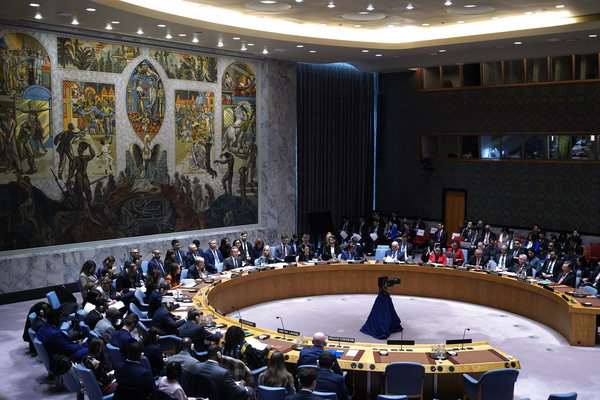
The People’s Republic of China

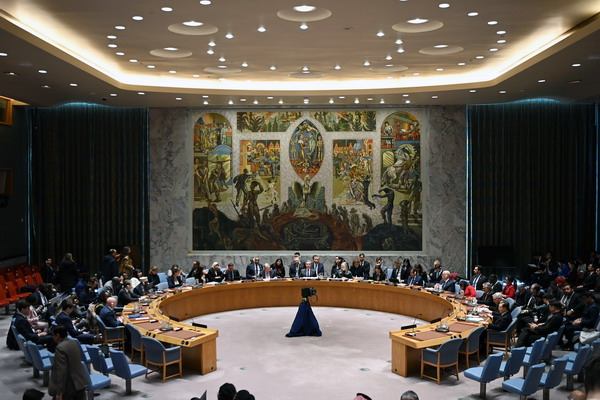
On February 18, 2025 local time, under the initiative of China as the rotating President of the United Nations (U.N.) Security Council for February, the Security Council held a high-level meeting themed "Practicing Multilateralism, Reforming and Improving Global Governance". The meeting was chaired by Member of the Political Bureau of the CPC Central Committee and Minister of Foreign Affairs Wang Yi. U.N. Secretary-General António Guterres delivered a briefing on the situation. High-level representatives, including foreign ministers from over 100 countries, covering members of the U.N. Security Council, were present.
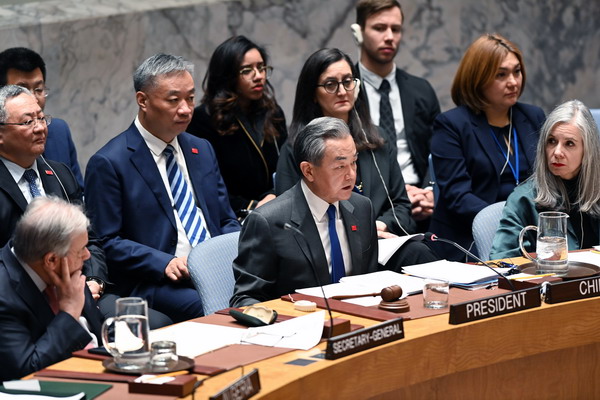
Wang Yi said, the year 2025 marks the 80th anniversary of the founding of the United Nations. The past 80 years is a period of accelerated advancement in world multipolarity and economic globalization, a period that has witnessed people across the world forging ahead and meeting challenges together, and also a period during which the Global South has been rising and growing in strength. Although human society has emerged from the shadows of the Cold War and moved beyond the bipolar standoff, comprehensive peace and shared prosperity remain elusive. In the third decade of the 21st century, peace and development remains a long-term, arduous task. History is enlightenment enough: In the face of the turbulent and changing international landscape, the U.N.-centered international system provides important safeguards for the cause of human progress, and the vision of multilateralism with coordination and cooperation as its cornerstone is the best solution to global issues. In the face of the historical trend of a shared future, no country can prosper alone; mutually beneficial cooperation is the right choice. In the face of the profoundly changing international landscape, the Global South should not only achieve the historic feat of moving toward modernization together, but also remain at the forefront of improving the global governance system. Members need, more than ever, to remind themselves of the founding mission of the U.N., reinvigorate true multilateralism, and speed up the efforts to build a more just and equitable global governance system. Wang Yi elaborated on China's four proposals.
First, upholding sovereign equality. In advancing global governance, all countries participate as equals, make decisions as equals, and benefit as equals. Members must respect the development paths chosen independently by people of all countries, uphold the principle of non-interference in internal affairs, and not impose one's will upon others. Members must practice international rule of law, ensure the effective implementation of international law, and reject double standards and selective application. Resolutions of the Security Council are binding, and should be observed by all countries. The Security Council is entrusted with authority, and such authority should be upheld by all countries. Any act of bullying, trickery or extortion is a flagrant violation of the basic norms of international relations. Any unilateral sanction that circumvents Security Council authorization lacks legal basis, defies justification and contradicts common sense.
Second, upholding fairness and justice. International affairs should no longer be monopolized by a small number of countries. Countries in the Global South have the right to speak up for and defend their legitimate rights and interests. The fruits of development should no longer be taken by just a few countries. People of all countries have the right to a happy life. The reform of the U.N. Security Council should continue to emphasize democratic consultation, increase the representation and say of developing countries, especially African countries, and effectively redress historical injustice.
Third, upholding solidarity and coordination. Countries should commit to the principle of extensive consultation and joint contribution for shared benefit, replace confrontation with coordination, prevent lose-lose through win-win cooperation, and break down small circles with greater solidarity. Members cannot just sit by and watch multilateral institutions become dysfunctional and ineffective due to their own failure to cooperate. The U.N. Security Council must rise above narrow-minded geopolitical considerations, champion the spirit of solidarity and cooperation, fulfill its duties conferred by the U.N. Charter, and effectually play its role for the maintenance of international peace and security.
Fourth, upholding an action-oriented approach. In the face of protracted wars, loss of innocent lives, and challenges brought by new technologies, U.N. agencies should seek solutions rather than chant slogans. It is important to implement the U.N.'s Pact for the Future with coordinated efforts, i.e. to turn the road map into a construction plan and a wonderful vision into substantive actions. It is vital to uphold the two-State solution, press for a comprehensive, just and lasting settlement of the Palestinian question, and bring lasting peace and security to the Middle East.
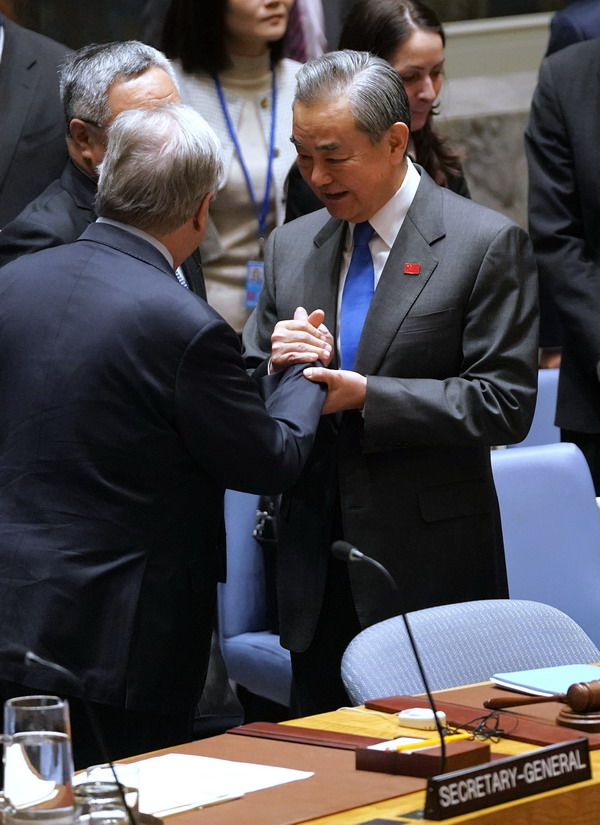
Wang Yi stressed that since the restoration of the lawful seat of the People's Republic of China in the U.N., China has remained steadfast in making its contribution and solutions to global governance. China pursues peace and security in global governance. China is committed to following a path of peaceful development, to resolving disputes and differences by peaceful means, and to constructively promoting the settlement of hotspot issues. China advances common development in global governance, advocates a universally beneficial and inclusive economic globalization and promotes high-quality Belt and Road cooperation. China champions openness and inclusiveness in global governance, respects cultural diversity, and advocates humanity's common values. China promotes exchanges, dialogue, and peaceful and harmonious coexistence among civilizations. China upholds multilateral cooperation in global governance. China is a member of almost all universal intergovernmental organizations. China supports the U.N. in playing a central role in international affairs. With the U.N. about to enter its next 80 years, China stands ready to work with all parties to draw wisdom from history, open a new era for multilateralism, and make global governance fairer and more equitable.
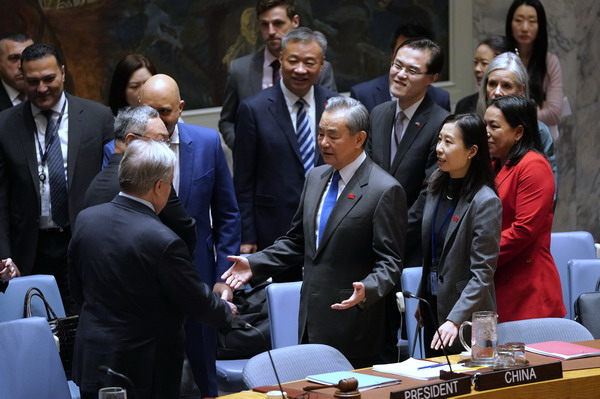
On the sidelines of the meeting, Wang Yi met respectively with U.N. Secretary-General António Guterres, as well as the foreign ministers of Pakistan, Hungary, Uganda, Somalia, and Bolivia, and had discussions with people from all sectors in the United States.
